Justin Taylor's Blog, page 15
August 28, 2020
My Podcast with Kevin DeYoung and Collin Hansen
I have joined the ranks of the podcasters.
My friends Kevin DeYoung and Collin Hansen and I communicate with each other on a daily basis. (Free advice: find yourself friends who are smarter and godlier than you—it’s good for your humility and will spur you on in the faith!) We wanted to make the conversation public, talking about some of our shared interests—hence the title, “Life and Books and Everything.”
We are now in “Season 2,” and if you want a sample, the show notes are below from our most recent episode.
You can follow us on Twitter (@LBEpodcast) and subscribe through:
Apple Podcasts
Spotify
Stitcher
We hope you enjoy listening as much as we enjoy having these conversations!
In this episode of Life and Books and Everything, Kevin, Collin, and Justin discuss the recent scandal involving Jerry Falwell Jr. and the difference between a therapeutic confession and one that admits guilt and sin, what habits of rest and recreation they practice, what their favorite biblical commentaries are, and lastly, they discuss Samuel James’s article, “Which Enemy? Which Doorstep?”
This episode of Life and Books and Everything is brought to you by Crossway. A specific book from Crossway we would like to highlight for our listeners is Family Discipleship: Leading Your Home through Time, Moments, and Milestones by Matt Chandler and Adam Griffin. In this book, Matt Chandler and Adam Griffin help families develop a sustainable rhythm of gospel-centered discipleship through a guided framework focusing on moments of discipleship in 3 key areas: time, moments, and milestones. Each section provides parents with Scriptures to consider, questions to answer, structures to implement, and ideas to try out.
Timestamps:
Book giveaway winner announcement! [0:00 – 3:10]
The Jerry Falwell Jr. Scandal [3:10 – 15:55]
Habits of rest, recreation, and sabbath [15:55 – 36:50]
Favorite Commentaries [36:50 – 59:48]
Multi-Directional Leadership [59:48 – 1:10:08]
Book recommendations
Collin’s favorite commentaries + other resources mentioned:
New Testament Commentary Survey by D. A. Carson
The Letter to the Romans (New International Commentary on the New Testament (NICNT)) by Douglas Moo
ESV Study Bible by Crossway
Commentary on the New Testament Use of the Old Testament by D. A. Carson and G. K. Beale
Blind Spots: Becoming a Courageous, Compassionate, and Commissioned Church by Collin Hansen
Kevin’s favorite commentaries:
Introducing the Old Testament: A Short Guide to Its History and Message by Tremper Longman
The Gospel according to John (The Pillar New Testament Commentary (PNTC)) by D. A. Carson
The Pillar New Testament Commentary (14 Volumes) from Eerdmans
The Book of Revelation (The New International Greek Testament Commentary) by G. K. Beale
Preaching the Word: New Testament Set by R. Kent Hughs
Reformed Expository Commentary Series from P&R Publishing
Tyndale Commentary Series from IVP Academic
Justin’s favorite commentaries:
ESV Expository Commentary Book Series from Crossway
The IVP Bible Dictionary Series from IVP Academic
July 22, 2020
The Memorial Service for J. I. Packer
The funeral service for J. I. Packer, above, was held on July 23, 2020, at St. John’s Vancouver, B.C.
You can download the order of service.
Find more information on how to offer tributes and memories.
July 17, 2020
J. I. Packer (1926–2020)
J. I. Packer went to be with the Lord on July 17, 2020. He was 93 years old.
Packer was a lifelong Anglican churchman who spent the first half of his life in England and the second half in Canada but who was perhaps most popular in the United States. He is widely recognized as one of the most influential theological popularizers of the twentieth century.
Throughout his nearly 70 years of writing and ministry, he stressed the importance of knowing and praying to and communing with the triune God. He called for the church to take holiness and repentance seriously by walking in the Spirit and fighting against indwelling sin. He defended biblical authority and championed the cause of disciple-making catechesis. And he reintroduced multiple generations to his beloved Puritan forebears, whom he regarded as the Redwoods of the Christian faith.
He saw himself as “a voice that called people back to old paths of truth and wisdom.” His entire life was spent resisting the idea that “the newer is the truer, only what is recent is decent, every shift of ground is a step forward, and every latest word must be hailed as the last word on its subject.”
Though he was willing to address and engage the controversies of his day, he wrote, “I should like to be remembered as one who pointed to the pasturelands.”
Early Life
James Innell Packer was born on July 22, 1926, in the village of Twyning in the north of Gloucestershire, England, the firstborn child of James and Dorothy Packer. His only sibling, Margaret, was born in 1929.
The Packers were a lower–middle-class family with a nominal Anglican faith, faithfully attending nearby St. Catharine’s Church but never talking about the things of God or even praying before meals.

In September of 1933, at the age of seven, young Packer was chased by a bully at junior school out into the street and violently collided with a passing bread van, resulting in brain surgery, a three-week hospital stay, and a six-month recuperation at home away from school. He had suffered a depressed compound fracture of the frontal bone on the right-hand side of the forehead. He later compared it to the way the top of an eggshell is knocked in when you hit it with an egg spoon, and a skilled surgeon at his local hospital removed the bits of broken bone. The doctor required him to wear a black, protective aluminum plate over his injury, held in place by an elastic band. He was forbidden from playing any sports, causing the young loner to further confine himself to things like reading and writing. He wore the protective plate for the next eight years, and then at the age of fifteen, refused to wear it again.
On the morning of his eleventh birthday, in 1937, Packer awoke hoping to find a bicycle waiting for him—a traditional coming-of-age gift for which he had dropped hints. Instead, his parents gave him an old heavy Oliver typewriter in excellent condition. His biographer Alister McGrath notes the spiritual lesson: “It was not what Packer had asked for; nevertheless, it proved to be what he needed. . . . his best present and the most treasured possession of his boyhood.”
That fall, in 1937, Packer transitioned from junior school to the Crypt School, where he became the only student in his class to specialize in “classics.” Leland Ryken writes:
The school itself was a prestigious one, going all the way back to 1539, the approximate time when Henry VIII broke with the Church of Rome and established the Church of England. The school received its name from the fact that it had been founded in the crypt or underground room of a parish church building. Ironically in view of Packer’s nominal Christianity at the time, but prophetically in view of what he became, the Crypt School counted among its former students the English preacher and evangelist George Whitefield.
 He played chess with a classmate whose father was a Unitarian minister, and the boy tried to convince Packer of Unitarianism, but Packer wondered why someone would accept some parts of the New Testament but reject the divinity of Jesus. He read C. S. Lewis’s The Screwtape Letters during his teenage years, followed by Mere Christianity, and spent some time reading his grandmother’s copy of the King James Bible—all of which solidified for him the basic framework of the Christian worldview, even though he still lacked saving faith. He later characterized himself as being halfway there.
He played chess with a classmate whose father was a Unitarian minister, and the boy tried to convince Packer of Unitarianism, but Packer wondered why someone would accept some parts of the New Testament but reject the divinity of Jesus. He read C. S. Lewis’s The Screwtape Letters during his teenage years, followed by Mere Christianity, and spent some time reading his grandmother’s copy of the King James Bible—all of which solidified for him the basic framework of the Christian worldview, even though he still lacked saving faith. He later characterized himself as being halfway there.
Packer was confirmed at St. Catherine’s at the age of fourteen having never heard about conversion or saving faith.
Conversion
At the age of eighteen, Packer won a scholarship to Oxford University, studying classics at Corpus Christi College. He arrived in Oxford as an awkward, shy, intellectual oddball (his descriptions), with a single suitcase in hand. His father was a clerk for the Great Western Railway, which enabled young Packer to have a free ticket for the hourlong train ride.
Three weeks later, on October 22, 1944, Packer attended a Sunday evening evangelistic sermon at St Aldate’s church. An elderly Anglican parson gave the address. The biblical exposition left Packer bored, but in the second half, the pastor recounted how at a boys’ camp he had been challenged as to whether he was really a Christian. Packer recognized himself in the story and realized he did not know Christ. Following the invitation, which concluded with the singing of “Just As I Am,” Packer gave his life to Christ. He was just yards away from where the eighteenth-century evangelist George Whitefield had converted in 1735.

The Puritans
That same year, in 1944, a retired Anglican clergyman, losing his eyesight, donated his large library to the Oxford Inter-Collegiate Christian Union. The leaders of OICCU stored them in a basement and asked Packer the bookworm if he wanted to sort through the sets, including classics from the sixteenth and seventeenth centuries.
Packer soon came across an uncut set of the writings of the seventeenth-century Puritan, John Owen. Packer noted with interest the volume on temptation and sin. He cut the volume open and devoured the contents. He later wrote: “I owe more, I think, to John Owen than to any other theologian, ancient or modern, and I am sure I owe more to his little book on mortification than to anything else he wrote.”
He later asked for people to think of him as a latter-day Puritan: “one who, like those great seventeenth-century leaders on both sides of the Atlantic, seeks to combine in himself the roles of scholar, preacher, and pastor, and speaks to you out of that purpose.”
He often contrasted the spirituality of the Puritans with contemporary evangelicals, calling the latter to imitate the former especially when it came to communing with God:
When Christians meet, they talk to each other about their Christian work and Christian interests, their Christian acquaintances, the state of the churches, and the problems of theology—but rarely of their daily experience of God.
Modern Christian books and magazines contain much about Christian doctrine, Christian standards, problems of Christian conduct, techniques of Christian service—but little about the inner realities of fellowship with God.
Our sermons contain much sound doctrine—but little relating to the converse between the soul and the Saviour.
We do not spend much time, alone or together, in dwelling on the wonder of the fact that God and sinners have communion at all; no, we just take that for granted, and give our minds to other matters.
Thus we make it plain that communion with God is a small thing to us.

Early Writings and Positions
Packer’s first published article, written in 1952, was on “The Puritan Treatment of Justification by Faith” (Evangelical Quarterly 24, no. 3 [1952], 131–43).
After obtaining his BA degree from Corpus Christi in Oxford (1948), he took up his first teaching post at at Oak Hill Theological College in London as a tutor (instructor) in Greek and Latin (along with some philosophy). During this 1948–1949 school year, 22-year-old Packer went every Sunday evening to Westminster Chapel to hear the preaching of Dr. Martyn Lloyd-Jones, who was 50 years old. Packer had never heard such preaching”—it came to him “with the force of electric shock, bringing to at least one of his listeners more of a sense of God than any other man.” “He was the greatest man I have ever known,” Packer wrote, “and I am sure that there is more of him under my skin than there is of any other of my human teachers.” As the two men got to know one another, Packer suggested to Lloyd-Jones that they start a regular gathering to help people understand and apply the insights of the Puritans. They co-founded the Puritan Conference and hosted it together for nearly two decades.
For the next three years, Packer studied for ordination at Wycliffe Hall, Oxford, and then did doctoral research. He was ordained as a deacon in the Church of England in 1952, then as a priest at Birmingham Cathedral in 1953.
From 1952 to 1954, he served as a curate (associate pastor) at St. John’s in Harborne, a suburb of Birmingham, while finishing his 400-page doctoral dissertation on the Puritan Richard Baxter at Oxford University. He was awarded the MA and DPhil in 1954.
On July 17, 1954, Packer married a Welsh woman, Kit Mullett, a young nurse whom he had met after a speaking engagement in Surrey in the late spring of 1952. Together they would go on to adopt three children: Ruth, Naomi, and Martin.
The Packers moved to Bristol in 1955, where Packer served as a lecturer at Tyndale Hall for the next six years. Two significant pieces of writing emerged from this tenure.
The first was a review essay entitled “‘Keswick’ and the Reformed Doctrine of Sanctification” (Evangelical Quarterly 27 [1955]: 153–67), accusing this Higher Life teaching on sanctification as thoroughgoing Pelagianism. This was Packer at his most polemical, partly on account of his personal experience and his pastoral heart for others to avoid the “pietistic goofiness” that had nearly driven him despair as a student. He later wrote:
It is not much of a recommendation when all you can say is that this teaching may help you if you do not take its details too seriously.
It is utterly damning to have to say, as in this case I think we must, that if you do take its details seriously, it will tend not to help you but to destroy you.
His biographer Alister McGrath looked back on the effect of this article and wrote:
There was . . . no response from the Keswick faction which rebuffed the critique offered by Packer. It is widely agreed that Packer’s review marked the end of the dominance of the Keswick approach among younger evangelicals. . . . [T]he theological weight of Packer’s critique seemed to many to prove unanswerable.
Second, in March of 1958, at the age of 31, Packer published his first book, “Fundamentalism” and the Word of God (IVP in the UK; Eerdmans in the US), a defense of the historic Protestant position on the authority of Scripture.
Michael Reeves writes:
It served as a morale-boosting rallying cry for evangelicals with a high view of the Bible, it raised the level of sophistication and nuance with which they could think about Scripture, and it established Packer as a theological leader of the movement.”
In 1961, the Packers moved back to Oxford, where for the next nine years he served as librarian and then warden at Latimer House—an evangelical research center begun by Packer and John Stott to theologically strengthen the Church of England.
During the 1960s editor Elizabeth Braund invited Packer to write a series of articles for their small bimonthly Evangelical Magazine offering a guide to basic Christianity. Packer wrote nearly two dozen pieces every other month for five years.
In 1970, Packer returned to Tyndale Hall as principal. The following year, Tyndale Hall was incorporated into the new Trinity College, Bristol, where Alec Motyer was named principal and Packer the associate principal. This move, however, freed Packer to have more time to write.
Knowing God
In the early 1970s, Packer approached Inter-Varsity Press about publishing the series of articles from Evangelical Magazine as a book. The publisher responded that they needed him to write on the charismatic issue sweeping through Great Britain before they would consider a book from him on another subject.
So he took it to Hodder & Stoughton instead, who gladly accepted it for publication. InterVarsity Press in the United States agreed to pick up the North American rights. The book was published in 1973 with the title Knowing God. It established his international fame, and went on to sell over a million and a half copies. “The conviction behind the book,” he wrote, “is that ignorance of God lies at the root of much of the church’s weakness today.”
Inerrancy
In February of 1977, Packer met with R. C. Sproul, John Gerstner, Norman Geisler, and Greg Bahnsen for a conference on the Authority of Scripture at Mount Hermon, California. Later that year, the International Council of Biblical Inerrancy was formed, which produced the Chicago Statement of Biblical Inerrancy a year later, with Sproul as the lead author.
Regent College in Vancouver
In 1979, James Houston, who had been friends with Packer since their undergraduate days at Oxford, invited him to join the faculty at Regent College at Vancouver. Packer eventually accepted the position, which would allow him to teach without administrative duties, and his family made the transatlantic relocation. He maintained a position at the university until the end of his life, retiring from full-time teaching in 1996 and then teaching part-time thereafter.
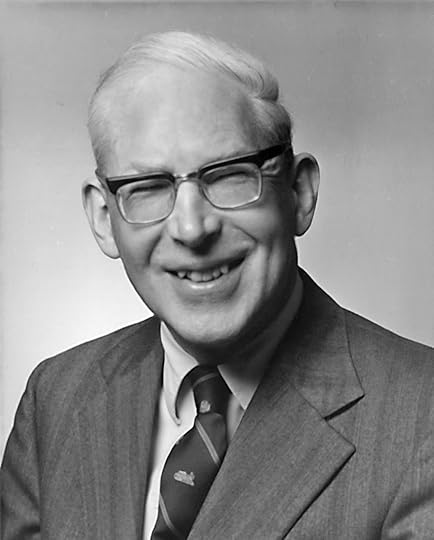
Controversies and Separations
Packer’s life was not without doctrinal controversy and relational rupture.
In October of 1966, during the National Assembly of Evangelicals, Lloyd-Jones issued a call for evangelicals to leave doctrinally mixed denominations (like the Church of England) and instead to fellowship with an association of independent evangelical churches. John Stott, who was chairing the session, violated the unwritten rules by publicly opposing the proposal after Lloyd-Jones was done speaking. Packer was not at the event (he heard about it by phone that evening), but he was on the side of Stott. The rift became a full-blown rupture in 1970, when Packer join with fellow Anglican evangelical Colin Buchanan and two Anglo-Catholics to publish Growing into Union: Proposals for Forming a United Church in England. The book led Lloyd-Jones to separate from Packer, removing him from the board of The Evangelical Magazine and canceling the Puritan Conference they had co-founded.
In March of 1994, Packer’s ecumenical inclinations again caused problems. He joined several evangelicals and Roman Catholics to sign onto a joint statement entitled “Evangelicals and Catholics Together,” co-authored by Charles Colson and Richard John Neuhaus. R. C. Sproul had previously said, “When the battle gets bloody, I want Jim Packer in my foxhole.” But Packer’s signing of the document mystified Sproul and others, who saw studied ambiguity in the wording that implied agreement on the gospel even as other theological differences remained. Both men agreed doctrinally on justification, but Sproul insisted the doctrine was essential, while Packer preferred to say it was central. Packer later wrote on why he signed it.
The third painful separation took place in 2002, when the synod of the Anglican Diocese of New Westminster in Vancouver authorized its bishop to produce a service for blessing same-sex unions. Packer was among the synod members who walked out in protest. He explained why:
Because this decision, taken in its context, falsifies the gospel of Christ, abandons the authority of Scripture, jeopardizes the salvation of fellow human beings, and betrays the church in its God-appointed role as the bastion and bulwark of divine truth.

In 2008, Packer’s church (St. John’s Shaughnessy, the largest church in the Anglican Church of Canada) voted to leave the ACC and to align with a more orthodox province in Argentina. As a result, Packer and the other clergy were suspend (their authority as ministers of the Word and Sacrament, conferred at their ordinations, was revoked) for (1) publicly renouncing the doctrine and discipline of the Anglican Church of Canada, and (2) having sought or intending to seek admission into another religious body outside the Anglican Church of Canada.
Packer had explained in his original decision to walk out:
For many decades now, I have asked myself at every turn of my theological road: Would Paul be with me in this? What would he say if he were in my shoes? I have never dared to offer a view on anything that I did not have good reason to think he would endorse.
Packer the Author and Reader
His biographer Leland Ryken notes that it is virtually impossible to construct a comprehensive bibliography of his writings:
In both his speaking and writing, Packer has followed a policy of entering virtually every door that has opened before him. The list of his publications defies tabulation, partly because of the large number of items, partly because the range of genres is so broad that it is hard to know what constitutes a publication as opposed to a privately printed document, partly because Packer has often published the same book in both the U. S. and Britain under different titles, and partly because many of his writings have been republished, sometimes with new titles.
Apart from Knowing God, his most widely read and influential works would have to include the books Evangelism and the Sovereignty of God (1971) and The Quest for Godliness: The Puritan Vision of the Christian Life (titled in the UK, Among God’s Giants, 1990), along with the essays “Saved by His Precious Blood: An Introduction to John Owen’s The Death of Death in the Death of Christ” (1958) and “What Did the Cross Achieve? The Logic of Penal Substitution” (1974).
In addition to his own writing and teaching, Packer also served as a theological advisor, consultant, and book endorser. Beginning in the early-1980s, with editor-theologian Kenneth Kantzer returning to teaching at Trinity Evangelical Divinity School, Packer was hired by Christianity Today in Carol Stream, Illinois, as a senior editor, making regular visits to the office, providing theological review, and critiquing each issue from the standpoint of good theology, sociology, and journalism, including what worked well graphically and conceptually.
Packer’s willingness to endorse books was a labor of love intended to help lay readers. He was often generous, perhaps to a fault, though to anyone who queried a particular decision, he insisted they read the endorsement carefully, noting not only what he said but what he didn’t say and how he said it! His commendations were often concise classics in and of themselves.
He was often asked what books had influenced him most, and he usually gave some variation of the following list:
John Calvin, Institutes of the Christian Religion
J. C. Ryle, Holiness
John Bunyan, The Pilgrim’s Progress
Richard Baxter, The Reformed Pastor
Martin Luther, The Bondage of the Will
The works of John Owen (particularly Indwelling Sin and The Mortification of Sin, Justification, The Holy Spirit, and The Death of Death in the Death of Christ)
His favorite novel was Dostoyevsky’s The Brothers Karamazov, and his favorite genre for pleasure reading was murder mystery and detective novels, devouring his first series of Agatha Christie books at the age of seven. (“What I enjoy is the poignant perplexity of the puzzle, the sleuth’s superior brainwork, and the doing of justice by clearing the innocent and exposing the guilty.”)
But his all-time favorite book was Pilgrim’s Progress, which he read every year of his Christian life until macular degeneration prevented him from reading.
Another personal interest of Packer’s was early jazz. At the age of thirteen, Packer was doing his homework one evening at home while listening to the radio, and the announcer decided to play some 1920s jazz: “Steamboat Stomp” by Jelly Roll Morton. “I remember getting up and going over to the radio and putting my ear against the speaker and just drinking it in. I was left gasping. My breath was literally taken away.” At Oxford he played clarinet for a jazz band called the Bandits, though he quit because it interfered with Saturday meeting of the Inter-Varsity group and he was told jazz was devilish. Later, though, he declared that “by Christian standards” he thought “early jazz was among the twentieth century’s most valuable cultural products.”
In a 1970 letter to Packer, ending his involvement with the Puritan Conference, Lloyd-Jones wrote:
You have known throughout the years not only my admiration for your great gift of mind and intellect but also my deep regard for you. I had expected that long before this you would have produced a major work in the Warfield tradition, but you have felt called to become involved in ecclesiastical affairs. This to me is nothing less than a great tragedy and a real loss to the Church.
The closest thing that Packer came to writing a systematic theology was his Concise Theology, sketching 94 doctrines in about 600 words for each. (Crossway is set to publish a hardcover edition, in-stock on Packer’s 94th birthday.) In a typical Packeresque sentence—simultaneously “packed” together and expansive—he explained the project:
As an activity, theology is a cat’s cradle of interrelated though distinct disciplines: elucidating texts (exegesis), synthesizing what they say on the things they deal with (biblical theology), seeing how the faith was stated in the past (historical theology), formulating it for today (systematic theology), finding its implications for conduct (ethics), commending and defending it as truth and wisdom (apologetics), defining the Christian task in the world (missiology), stockpiling resources for life in Christ (spirituality) and corporate worship (liturgy), and exploring ministry (practical theology).
Near the end of the twentieth century, an opportunity arose that Packer thought could be a project that could be among the most significant investments he could make to the global church. Dr. Lane Dennis, the president of Crossway Books in Wheaton, Illinois, invited Packer to serve as the general editor of a Bible translation. Packer was the one who eventually suggested the name: The English Standard Version.
Published in 2001, Packer later reflected:
I was privileged to act as General Editor of the English Standard Version, and now that I look back on what we did in producing that version, I find myself suspecting very strongly that this was the most important thing that I have ever done for the Kingdom.
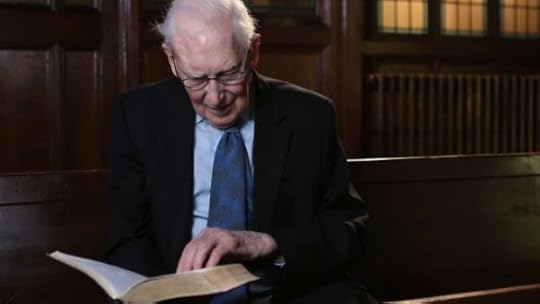
Packer’s “last crusade” was devoted to helping the church recover catechesis. His final years were devoted to convincing the North American church of the new to renew catechesis (instruction in the Christian faith). This work culminated in To Be a Christian: An Anglican Catechism—the catechism of the Anglican Church in North America (ACNA).
The final work he was able to complete in this lifetime was to make final verbal edits as his wife read aloud to him in their home the final draft of his manuscript for The Heritage of Anglican Theology, built on his years of classroom teaching, to be published by Crossway in May of 2021.
Packer the Man
He sometimes wondered if commentators on his theological and ministerial career had the missed personal side of Packer, including the humor that he saw in life and the twinkle in his eye. He did not want to be portrayed as a brain in vat or a mere purveyor of ideas.
His longtime friend Timothy George described what it was like to watch the man in action:
His smile is irrepressible and his laughter can bring light to the most somber of meetings.
His love for all things human and humane shines through.
His mastery of ideas and the most fitting words in which to express them is peerless.
Ever impatient with shams of all kinds, his saintly character and spirituality run deep.
On a personal level, I can only add that in every single encounter that I was privileged to have with him, I came away thinking of him not as a great man, but as a man who had personally encountered a Great Savior. Each time I had the deep sense of longing not to be more like Packer, but to be more like Christ.
In Knowing God, he wrote:
If you want to judge how well a person understands Christianity, find out how much he makes of the thought of being God’s child, and having God as his Father.
If this is not the thought that prompts and controls his worship and prayers and his whole outlook on life, it means that he does not understand Christianity very well at all.
Though his spiritual thinking was as mature as they come (1 Cor. 14:20), throughout his life he retained a childlike humility and trust in God (Matt. 18:12) and he never got over the wonder of being known and adopted by his heavenly Father, united to Christ, and walking by the Spirit.

In 2015, while filming a short documentary on Packer for Crossway, it came time for my final question. I was off camera, and I asked how he might want to be remembered someday when he was gone.
He paused, in his characteristic way before answering any question, no matter how routine, and responded:
As I look back on the life that I have lived, I would like to be remembered as a voice—a voice that focused on the authority of the Bible, the glory of our Lord Jesus Christ, and the wonder of his substitutionary sacrifice and atonement for our sins.
I would like to be remembered as a voice calling Christian people to holiness and challenging lapses in Christian moral standards.
I should like to be remembered as someone who was always courteous in controversy, but without compromise.
I ask you to thank God with me for the way that he has led me, and I wish, hope, pray that you will enjoy the same clear leading from him and the same help in doing the tasks that he sets you that I have enjoyed.
For Further Reading
Alister McGrath, J. I. Packer: A Biography
Leland Ryken, J. I. Packer: An Evangelical Life
Sam Storms, Packer on the Christian Life
Mike Reeves, “The Puritan Theologizer: J. I. Packer,” in Theologians You Should Know
Timothy George, ed., J. I. Packer and the Evangelical Future: The Impact of His Life and Thought
July 8, 2020
New Releases from Crossway in July

Below is a list of the new and notable resources releasing from Crossway this month. Titles include Weep with Me: How Lament Opens a Door for Racial Reconciliation by Mark Vroegop, Why Am I Feeling Like This? A Teen’s Guide to Freedom from Anxiety and Depression, and Why Is My Teenager Feeling Like This? A Guide for Helping Teens through Anxiety and Depression by David Murray.

Weep with Me: How Lament Opens a Door for Racial Reconciliation
However, Martin Luther King Jr. once said that the most segregated hour in America is eleven o’clock on Sunday morning. Equipped with the gospel, the church should be the catalyst for reconciliation, yet it continues to ignore immense pain and division.
In an effort to bridge the canyon of misunderstanding, insensitivity, and hurt, Mark Vroegop writes about the practice of lament, which he defines as “the biblical language of empathy and exile, perseverance and protest.” Encouraging you to “weep with those who weep” (Rom. 12:15), Vroegop invites you to mourn with him over the brokenness that has caused division and to use lament to begin the journey toward a diverse and united church.
“If the sinful and tragic issues of racial injustice do not drive Christians to lament, it can only be because we do not, or will not, see the reality all around us. This book by the brilliant and faithful Mark Vroegop helps us to see that lament is not despair and resignation but instead the first step toward healing and restoration. This book will help Christians of every ethnicity to learn to love one another and to bear each other’s burdens.”
—Russell Moore, President, The Ethics & Religious Liberty Commission of the Southern Baptist Convention
Why Am I Feeling Like This? A Teen’s Guide to Freedom from Anxiety and Depression
If you have experienced anxiety or depression, you may have asked yourself, Why am I feeling like this? You are not alone.
Pastor and counselor David Murray introduces you to the personal accounts of eighteen teens who have struggled with different types of anxiety or depression. This guide will help you discover not only the common causes but also the keys to unlock their chains. By utilizing God-given truths and tactics, you can experience new liberty, peace, and joy in your life.
“As a parent of three daughters, I know teenagers fear talking to their parents about difficult subject matters like anxiety and depression. But this no longer has to be the case. My friend David Murray wrote a tool for teenagers to not only help them understand anxiety and depression but also give them guidance on how they can have tough conversations with their parents or other responsible adults.”
—Ed Stetzer, Executive Director, Billy Graham Center for Evangelism, Wheaton College
Why Is My Teenager Feeling Like This? A Guide for Helping Teens through Anxiety and Depression
Have you ever looked at your anxious or depressed teenage son or daughter and wondered, Why is my teenager feeling like this?
In this companion guide to his book for teens Why Am I Feeling Like This?, pastor and counselor David Murray offers spiritual encouragement and practical direction for parents and other adults who want to help but don’t know where to start. Structured around eighteen real-life examples, Murray provides tips for having open conversations with teens about anxiety and depression, as well as discussion questions, Bible verses for memorization, and prayers. With these tools in hand, parents and teenagers alike will be equipped to experience freedom from the chains of anxiety and depression.
“In this book, David Murray comes alongside parents who may be willfully naive about or find themselves completely overwhelmed by how to help their child deal with depression, offering understandable explanations of the issues and equipping them for important conversations.”
—Nancy Guthrie, Bible teacher; author, Even Better than Eden: Nine Ways the Bible’s Story Changes Everything about Your Story
God on the Brain: What Cognitive Science Does (and Does Not) Tell Us about Faith, Human Nature, and the Divine
The human brain is incredibly complex. Both Christian and secular scholars alike affirm this fact, yet the traditional view of humanity as spiritual beings made in the image of God has come under increased pressure from humanistic and materialistic thinkers who deny that humans are anything more than their physical bodies. Christians have long affirmed that humans are spiritual beings made by God to know and fellowship with him, while the humanist position views humans as merely evolved animals.
Bradley Sickler provides a timely theological, scientific, and philosophical assessment of the human brain, highlighting the many ways in which the gospel informs the Christian understanding of cognitive science. Here is a book that provides a much-needed summary of the Bible’s teaching as it sheds light on the brain, with careful interaction with the claims of modern science, arguing that the Christian worldview offers the most compelling vision of the true nature of humanity.
“A number of philosophers and scientists argue that humans are nothing more than their physical bodies, yet God on the Brain shows why this view lacks grounding. Compelling, eloquent, and accessible, this book upholds the case for a traditional view of humans as both physical and spiritual. I highly recommend Sickler’s volume to all who are interested in the intersection of neuroscience and philosophy with the Christian faith.”
—Sharon Dirckx, Senior Tutor, Oxford Centre for Christian Apologetics; author, Am I Just My Brain?
An Introduction to John Owen: A Christian Vision for Every Stage of Lie
More than three centuries after his death, Puritan theologian John Owen continues to have an impact on readers. In his eight million published words, he addressed a wide range of topics, from theological and biblical commentary to social and political issues. In this survey of Owen’s life and work, Crawford Gribben captures the vision of the Christian life that Owen himself lived out—and hoped his readers would live out as well.
“In the relatively brief compass of this fresh approach to the core intellectual ideas of John Owen, Crawford Gribben has written what amounts to a must-read work about the mentalité of this theological colossus. A fabulous achievement!”
—Michael A. G. Haykin, Chair and Professor of Church History, The Southern Baptist Theological Seminary
July 6, 2020
Song of the Day: “Your Will Be Done” (CityAlight)

Your will be done, my God and Father
As in heaven, so on earth
My heart is drawn to self-exalting
Help me seek Your kingdom first
As Jesus walked, so I shall walk
Held by Your same unchanging love
Be still my soul, O lift your voice and pray:
‘Father, not my will but Yours be done.’
How in that Garden he persisted
I may never fully know
The fearful weight of true obedience
It was held by him alone
What wondrous faith, to bear that cross!
To bear my sin, what wondrous love!
My hope was sure, when there my Saviour prayed:
‘Father, not my will but Yours be done.’
When I am lost, when I am broken
In the night of fear and doubt
Still I will trust in my good Father
Yes, to one great King I bow!
As Jesus rose, so I shall rise
In ransomed glory at the throne
My heart restored
With all your saints I sing:
‘Father, not my will but Yours be done!’
As we go forth, our God and Father
Lead us daily in the fight
That all the world might see Your glory
And Your Name be lifted high
And in this Name we overcome
For You shall see us safely home
Now as your church, we lift our voice and pray:
‘Father, not my will but Yours be done!’
June 30, 2020
Identity Politics and the Death of Christian Unity
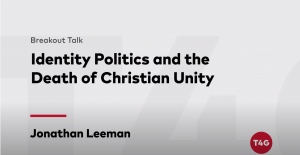
Notes from Jonathan Leeman’s 2020 T4G address:
1. What Is Identity Politics?
It is an approach to politics based on one’s group identity.
It comes with a basic worldview which measures life in terms of power generally and the division of groups between oppressor and oppressed specifically.
It views life and truth as socially constructed.
The primary political activity of oppressed groups is consciousness-raising and collective action.
2. Identity Politics Is an Unexpected Ally
It reminds us of what the Bible teaches about the pervasiveness of sin.
It helps us better understand the Bible’s call to repentance and the unity that only come through repentance.
It encourages us to consider more carefully the prominent role the Bible gives to justice.
It helps us better understand what the Bible teaches about authority, at least perversions of authority in the fall.
3. Identity Politics Is a Misleading Ally—An Anti-Theology
Its doctrine of creation: It treats both group and the individual as god. Therefore, there is little basis for human unity or dignity.
Its doctrine of sin and the fall: It offers a different list of sins than the Bible’s, which creates new injustices. It also overlooks the universality of sin.
Its doctrine of redemption: It offers salvation by merit, which yields self-righteousness. And it insists on political agreement, which yields division.
Are our present divisions the fault of identity politics?
Identity politics is a cause of some of our divisions.
But identity politics is also the symptom of older sins, sins which are also responsible for our present divisions.
4. Where Do We Go From Here?
Preach the political power of justification by faith alone, which is the source of the church’s spiritual and political (not partisan) unity.
Point to the church as the political hope of the nations and where we find our primary identity together in Christ.
Preach the whole Bible.
Maintain both love and truth.
June 26, 2020
What the Tentmaking Business Was Really Like for the Apostle Paul

After this Paul left Athens and went to Corinth. And he found a Jew named Aquila, a native of Pontus, recently come from Italy with his wife Priscilla, because Claudius had commanded all the Jews to leave Rome. And he went to see them, and because he was of the same trade he stayed with them and worked, for they were tentmakers by trade. And he reasoned in the synagogue every Sabbath, and tried to persuade Jews and Greeks.
—Acts 18:1–3
In his absolutely fascinating book, Paul and First-Century Letter Writing: Secretaries, Composition and Collection (IVP, 2004), E. Randolph Richards seeks to determine (among many other things) how much it might have cost the Apostle Paul to write his letters, including the secure of materials and the hiring of a secretary to make a copy for himself. After extensive research and calculation, he determined that on the low side it would have cost him at least $2,000 in today’s currency to write 1 Corinthians. (And that doesn’t include the cost of sending someone like Titus on a long journey to deliver it.)
He asks: “How was it that Paul paid for his letters?” and answers: “It is possible that the church where he was serving or a patron in the church paid the expense. It is less likely that Paul paid for the letter from his income as a tentmaker. Paul’s work as a tentmaker has been exaggerated in modern times, particularly in discussions of modern mission methodology.”
Richards goes on:
As a traveler, Paul did not carry the supplies necessary to conduct a significant business as a tentmaker. It is true today and even truer in antiquity that one did not enter a town and immediately open a profitable business. In the ancient Greco-Roman world, it took considerable time to establish the necessary relationships in order to gain the necessary permissions to conduct business in a city, both from city leaders as well as the appropriate guilds. Paul was able on occasion to enter into business, but only in situations such as Corinth, where he was actually assisting in an established business with an established shop with regular suppliers, owners with memberships in the appropriate trade guilds and a regular clientele. While he and his team may have done some minor contract work (repairing tents perhaps) in order to gain food and lodging, Paul was primarily dependent, as were all travelers, upon hospitality and patrons.
June 25, 2020
Submission, Authority, and Every Christian’s Core Identity

In an essay on “Godly Roles and Relationships: Ephesians 5:21–6:9,” David Powlison makes three arguments:
We all have a common call from God, defining us as peers with each other.
We each have a particular focus without our primary relations, as servant-leaders and servant-submitters.
Most of us wear multiple hats, sometimes called to lead and other times called to submit” (p. 60, my emphasis).
In other words,
we must treat everyone the same (with redemptive love) as part of our common call;
we must treat people differently, according to our particular focus; and
we must submit to Christ by being under some people and looking after other people.
The oxygen in the room typically gets used up on the nature of authority and submission in the particular focuses. But Powlison reminds us of our common call and common identity.
His entire section on this is worth reading in full.
You have a common calling in all relationships to walk worthy of your identity as Wife, Child, and Slave of the Lord. The Lord calls you to please him by humility, forbearance, candor, generosity, and tender-heartedness to all others. This common calling operates irrespective of the social roles you fill.
It establishes a core attitude of mutuality that threads through every single relationship. We are one with each other and we are equals, leveled before God, whether apostle or new-hatched convert, four-star general or buck private, CEO or custodian. We live as peers before him who is no respecter of persons. Difference of competence, power, wealth, intelligence, achievement, opportunity, sex, age, and ethnic background vanish. All of Ephesians 1:1–5:20 and 6:10–24 applies always, to every Christian, in every relationship.
You have been given God’s grace, and commanded by your Lord Jesus to give grace to all others. Whether married or single, male or female, child or parent, employee or boss, you live within a mutuality: one church, members of one body, brothers and sisters to one another.
You are a we. You are called to be patient and constructive in every relationship. A husband and wife, or a parent and child, ought to communicate openly, drawing on each other for help and perspective, seeking to understand and encourage each other, repenting of sins that interfere. No superiority, no double standards. If kids should not backtalk to parents, then parents should not yell at kids. If wives should not be shrewish and domineering, then husbands should not be brooding and domineering. The common calls applies equally to all.
When you think about the core of your identity, you are first and foremost Wife. You are one part of the body of Christ in union with her one Husband (Eph. 5:25–32). Whether you are male or female, married or single, you are Wife to Jesus Christ, called to fear Christ and live subject to him.
Similarly, at the core of who you are, you are essentially Child, beloved of the one Father (1:2; 1:5; 5:1). Whether you are a parent or a child, you are a Child to God, called to obey and honor him.
Furthermore, you are essentially Slave in the Lord (5:8–10; 6:5–9). Whether you are in authority or under authority in your workplace, you are Slave to Christ, called to obey and fear him.
You may be a man, but you are a Wife.
You may have kids, but you are a Child.
You may have people answering to you, but you are a Slave.
Each of us in our core identity is meant to live as a subordinate.
We all receive the love, provision, attention, mercy, protection, and upbuilding grace of our Husband, Father, and Lord. Christ is head, leader, master, and dominant partner. He is our “superior” and we are his “inferiors,” in the good, old sense of the words. We are subjects, followers, and dependents. We stand under him. This subordinate relationship with the God who rules us and cares for us must color every aspect of our lives.
Growth in Christ, then, has a striking double thrust.
First, maturity deepens submission. You increasingly learn to serve Christ, to please him (Eph. 5:8–10).
But, second, this maturity makes you a leader. Submission heightens your likeness to him (Eph. 4:32–5:2), and you increasingly picture the essence of leadership. You say No to self-will and self-striving. You say Yes to a purposeful life for God that embodies clarity, conviction, integrity, wise counsel, forgiveness, generosity, patience, and self-giving love. So as any Christian submits to Christ’s leadership, he or she becomes more of a leader in the best sense of the word. Good subjects grow masterly. Whatever the particulars of your calling as a husband-wise, parent-child, or boss-worker, they never override your core identity and common call as a Wife, Child, and Slave. The common call conditions every detail. (pp. 61–63)
—David Powlison, “Godly Roles and Relationships: Ephesians 5:21–6:9,” in Seeing with New Eyes: Counseling and the Human Condition Through the Lens of Scripture (Phillipsburg, NJ: P&R, 2003), 59–74.
June 22, 2020
Why Does Water Come Out of the Water Bottle When It Is Shaken?
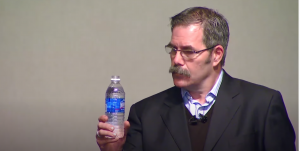
The illustration above from Paul Tripp illustrates the reality of verses like these:
“Out of the abundance of the heart the mouth speaks.” (Matt. 12:34; Luke 6:45)
“Keep your heart with all vigilance, for from it flow the springs of life.” (Prov. 4:23)
For a book-length treatment of the heart from a biblical perspective, see Craig Troxel, With All Your Heart: Orienting Your Mind, Desires, and Will toward Christ.
June 18, 2020
A Christian Approach to Moving Beyond Racial Gridlock: An Alternative to Secular “Black Lives Matter” and “All Lives Matter” Ideologies
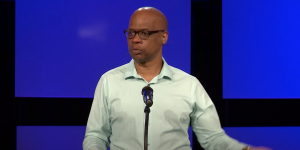
Professor George Yancey (PhD, University of Texas) is professor of sociology at the University of North Texas, specializing in race/ethnicity, biracial families, and anti-Christian bias. He is the author of Beyond Racial Gridlock: Embracing Mutual Responsibility (IVP, 2006). The above talk asks whether Christianity can offer a unique approach to the problem of racism and race relations that differs from the dominant secular ideologies of our day. You don’t have to agree with every jot and tittle to benefit from his analysis and prescription.
Notes
A racialized society is a society where race matters profoundly for differences in life experiences, life opportunities, and social relationships).
The social reality of race:
interracial marriage
profiling
stereotyping
residential segregation
non-integrated churches
Two contrasting views about racism:
Racism is something overt and only done from one individual to another individual.
Racism is structural as well as individualistic, and social institutions can perpetuate racism even when individuals do not intend to be racist.
Two major manifestations of these models today:
Black Lives Matter
All Lives Matter
All Lives Matter is tied to white identity:
individualism
comfort in society
colorblindness
An All Lives Matter philosophy is tied to a continuation of the social norms that benefit white Americans.
How Black Lives Matter talks about privilege:
Only whites have privilege
White opinion about privilege does not matter
Lack of privilege explains the struggles of people of color
To not acknowledge privilege is racism
What both approaches (Black Lives Matter and All Lives Matter) have in common:
They both operate as if humans are perfectible
They both ignore human depravity
They are both unable to develop support across the different racial/social groups
A Mutual Obligations Approach
A Christian-based approach whereby we recognize that people of all races have a sin nature that has to be accounted for.
Thus everyone has an obligation to work toward healthy interracial communications to solve racial problems.
Two implications of Mutual Accountability:
Institutional problems
Interpersonal relationships
Institutional problem examples:
Police-community relations
Contrasting worship styles in church
Curriculum in educational institutions
Minority representation in the workplace
Steps in using a Mutual Obligation Approach:
Define the racial problem.
Identify the critical core.
Recognize the cultural or racial differences at play.
Develop ideas that address concerns of racial out-groups.
Work toward a solution that can be accepted by all.
Personal application: Active Listening
Find someone you disagree with greatly on racial issues.
Have lunch or coffee with them.
Listen to their perspective.
Talk to them until they are satisfied that you understand their perspective.
If they are willing to listen to you, then explain; otherwise, let it go.
Do not feel obligated to agree with them.
What this exercise may accomplish:
Help us learn the perspective of others
Help us learn how to actively listen
Prepare us to communicate with others when the next racial crisis occurs
Create a larger atmosphere that promotes real useful interracial communication
Final comments
Our previous emphasis on human perfectibility is not working.
We need a new model if we are to get out of this racial rut.
Christianity differs from Enlightenment movement ideas as it concerns human depravity.
Respect for depravity can allow us to work at the types of conversations we need to overcome racial alienation.
Justin Taylor's Blog
- Justin Taylor's profile
- 44 followers







